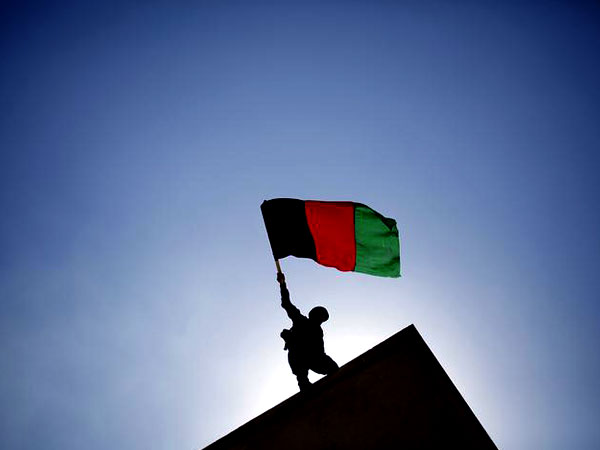Taliban assures safety of Afghans who worked with foreign forces, but few believe them
"Nothing can change the Taliban's' mentality regarding us translators, which is our death...there is a big difference between the Taliban's words and actions." U.S. Secretary of State Antony Blinken told the U.S. House Committee for Foreign Affairs on Monday there had been a backlog in cases and there were still about 18,000 applicants for the Special Immigrant Visas designed for those who had worked with U.S. government forces and agencies. Efforts were being made to speed things up, he said.

- Country:
- Afghanistan
The Taliban have assured Afghans who worked with foreign forces of their safety, telling them not to flee the country as Western embassies process thousands of visa applications. Few felt reassured as panic rises ahead of a troop withdrawal, however.
The insurgent group said on Monday Afghans who had worked as interpreters or in other roles would be safe so long as they "show remorse" for their past actions. They must also not engage in activities which it said "amount to treason against Islam and the country".
But as the clock ticks down to a final troop withdrawal deadline of Sept. 11 and fighting and killings rise around the country, the thousands of Afghans who have applied for visas to leave are becoming increasingly concerned. "It is nothing but a lie, I don't trust the Taliban...it is just a fake attempt to show a good image of their to the world," said Babakarkhel, who asked to be identified by only one name.
He said he had worked with U.S. forces in southeastern Afghanistan for six years. "I am sure they will kill me, they will cut me into pieces if they catch me tomorrow."
His visa has been in process for two years, he said. Khan, who also asked his full name not be used, had worked as a translator for German forces in northern Afghanistan and has applied for a visa to Germany, said he constantly feared death from the Taliban and dreaded the withdrawal of troops while he waited for his visa.
"The Taliban hate us more than any others, calling us spies and traitors," he said. "Nothing can change the Taliban's' mentality regarding us translators, which is our death...there is a big difference between the Taliban's words and actions." U.S. Secretary of State Antony Blinken told the U.S. House Committee for Foreign Affairs on Monday there had been a backlog in cases and there were still about 18,000 applicants for the Special Immigrant Visas designed for those who had worked with U.S. government forces and agencies.
Efforts were being made to speed things up, he said. James Miervaldis, the Board Chairman of American non-profit No One Left Behind, which works with thousands of Afghan interpreters to help them get to the United States, said things were not moving fast enough.
"We're very concerned. It's good that things are happening, we just need them to happen faster. There's real panic and fear across the board from every applicant." He said about two interpreters a month had been killed this year, but the figure rose to about five last month. Other interpreters were receiving threatening letters from the Taliban.
There was widespread mistrust of the Taliban's assurances of safety, he said. "Nobody's buying it." The Taliban did not respond to a request for comment on the threats and killings faced by interpreters.
The U.S. State Department said it was still committed to resettling Afghans who had worked with the U.S. government, and was troubled by the killings of non-combatants. While it welcomed the Taliban's statement, "We will not be reassured until all targeted attacks on civilians stop," a State Department spokesperson said.
Fighting has increased across Afghanistan as the United States and more than 20 allied countries withdraw, ending a two-decade presence since the Taliban were forced from power in the wake of the 9/11 attacks on the United States. Political talks between the government and the Taliban have largely stalled.
(This story has not been edited by Devdiscourse staff and is auto-generated from a syndicated feed.)
ALSO READ
States asked to enforce weekly stock disclosure of pulses
Vietnam tycoon sentenced to death in $12 billion fraud case, state media reports
GLOBAL MARKETS-Asian shares fall on U.S. rate scare, yen plumbs 34-yr low
UPDATE 1-Vietnam tycoon sentenced to death in $12 billion fraud case, state media reports
EMERGING MARKETS-Stocks, FX slide after U.S. inflation print triggers global selloff










